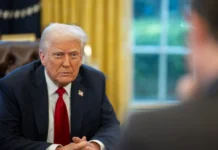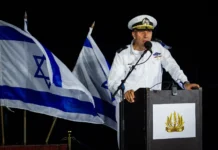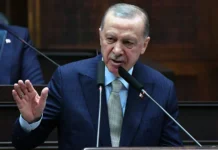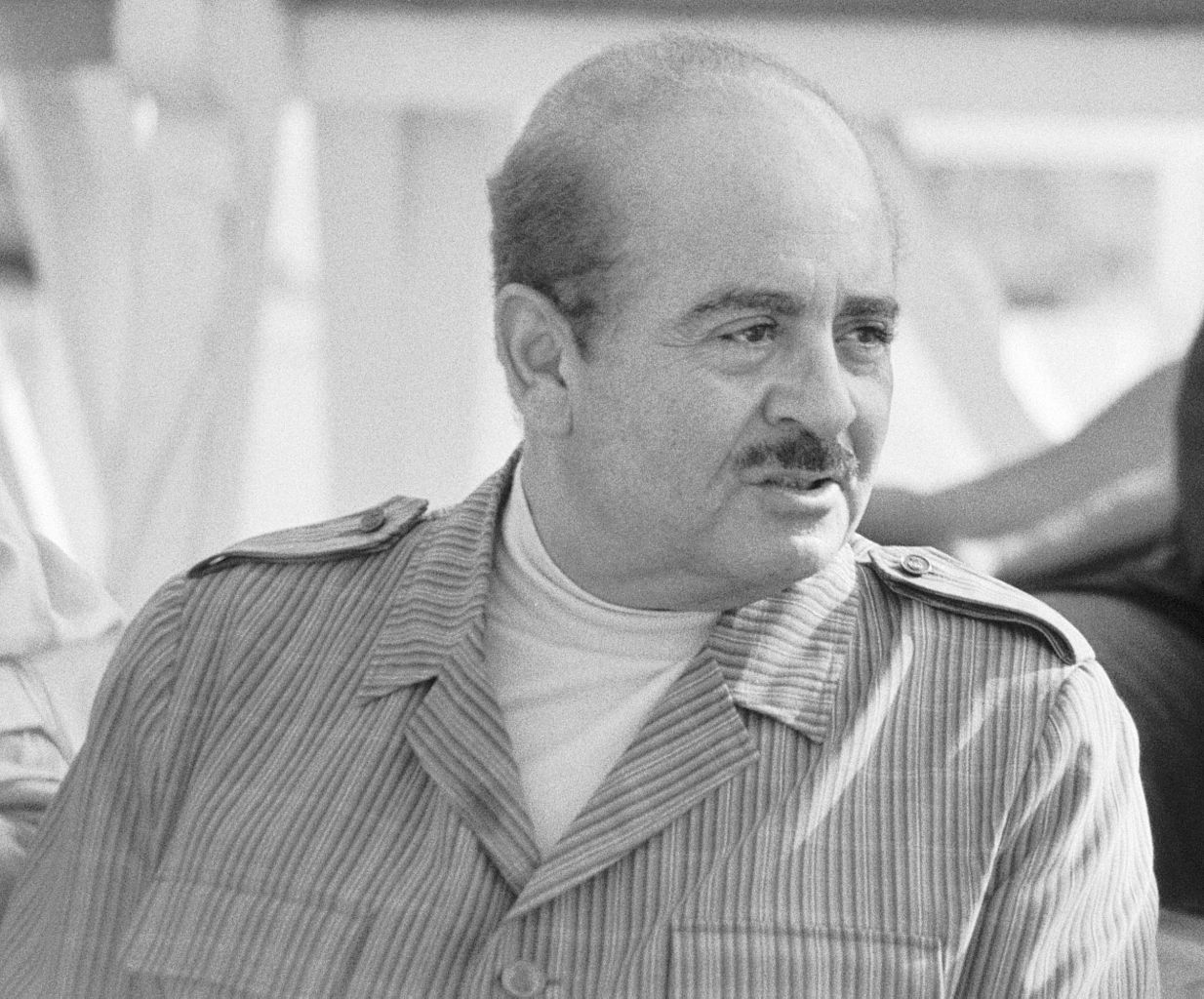The mystery of the ex-Saudi editor and writer Jamal Khashoggi’s presumed disappearance from the Saudi Consulate in Istanbul two weeks ago seems to be deepen with each passing day.
The gruesome picture of the writer being supposedly beaten, murdered, and cut up into pieces and then carried out of the Consulate is just the sort of thing that the press eats up.
The Turkish media loosely affiliated with Turkey’s intelligence apparatus (the MIT) has been leaking clues and conjectures, but as of the moment, nothing substantive has emerged out of the joint Saudi-Turkish-US investigation that would reveal what actually happened that day.
Meanwhile, the consequences of his disappearance have been disastrous for Saudi Arabia. Lobbyists, investors, and major publications have pulled out of an upcoming investment conference, as well as from doing business in the Kingdom. Hollywood, too, not known for its ethics, is considering rejecting Saudi investments.
The fallout is threatening the Crown Prince Mohammed bin Salman’s Vision 2030 initiative, and with it, the process of economic reforms, privatization and independence from the government and from oil, as well as civil society building.
Politicians have called on WWE to cancel an upcoming tournament, which is supposed to generate tourism and profits, while pressuring for Magnitsky sanctions in relation to the journalist’s disappearance. The stock market collapsed, wiping out profit for the entire year. The bad press generated from this severely damaged the Kingdom’s image it has been trying to rehabilitate through its reforms. European allies, too, have pushed for an investigation. Internal PR has been messy and chaotic, with the Foreign Ministry threatening to meet sanctions with countersanctions, Al Arabiya writers painting a dark future with the Russia’s military base inside the Kingdom, and the Saudi Embassy in the US doing damage control with far more measured and gracious statements thanking the United States, and others (presumably including the Middle Eastern allies which pledged full support) for not jumping to conclusions.
Given the dearth of hard facts, the gloating from the Western media has been unseemly – yet many, who have preconceived notions about the Kingdom, and who are not inclined to judge the painful reform process charitably, were too eager to bite the bait. Much of the discussion in the United States has turned to President Trump, dividing his hawkish allies and dovish critics along this issue, and turning the writer, who has been of little interest to most of country’s readership until just a few days ago, into a significant wedge issue. However, partisan politics are just one factor of the exceptional attention this deepening mystery drew around the world, particularly in the United States. Of course part of the reason is that the Saudis themselves miscalculated tremendously in responding to accusations with a defensive attitude, chaotic, uncoordinated comments, and conspiracy theories generated by troll factories. Lack of transparency is now threatening relations with the United States, with President Trump being put in an awkward position of defending US interest in continuing to sell arms to the KSA, while also having to punish the miscreants with fire and fury, particularly if those miscreants turned out to be the Saudis.
The fact that some voices in the Saudi government escalated the exchange of words while others sought to contain the growing tensions and push for a voice of reasons shows that the Saudi official circles are far from monolithic. For that reason, it is easy to dispute the version of events that attributes any activity related to abduction or assassination of Khashoggi to the Crown Prince; that version of events assumes the Western stereotype of an absolute monarchy, which is not how the Royal Family works in Saudi Arabia, not even with Mohammed bin Salman at the helm. The evidence for the factionalism and internal rivalry can be deduced from the numerous succession crises the country has experienced, with several changes in the actual or presumed heads of state in less than a decade.
The 2017 corruption probe, too, showed a level of internal tensions. And many analysts have noted the tough balancing act any leader, reformer or otherwise, has to put on with regards to balancing the interests of the various family members, not to mention the clergy, and the usual governance issues. For those familiar with Mohammed bin Salman’s personality and signature style, the mystery is not really a mystery but a presumed fact. The two types of arguments made about him – that he is thuggish and tyrannical, or on the contrary, impulsive and forceful out of inexperience and immaturity, have been fairly consistent across various articles quoting relevant officials and operatives on this issue. That should, in theory, make the resolution of this enigma fairly easy to predict.
However, once again, that could only be true if we assume that 1. the monarch actually takes charge of such operations and 2. Less impulsive, more seasoned operatives have not taken advantage of the Crown Prince’s well known personality traits to set him up in a way that makes it very difficult to dispute and disprove. We have already seen a similar tactic used by Democratic operatives against now-Justice Brett Kavanaugh. They did not hesitate to use a traumatized woman to attack the judge on the basis of his partying days, proclivity towards excessive use of alcohol, and social reputation. Anyone with a character flaw of any kind (and that’s 100% of humanity) can be taken advantage of on the basis of these vulnerabilities by malefactors if given an opportunity.
The opportunity presented itself on the basis of conversations between some of the people in the relevant Saudi government circles, who, according to US intelligence, have been intercepted discussing plans for the detainment of Jamal Khashoggi. If the US intelligence intercepted that chatter, so could anyone else, in theory. Whether those conversations were part of an actual conspiracy or just wishful thinking that would ultimately result in a frame by another party, remains to be seen. However, if given sufficient detail about the plans for the operation, it is not inconceivable that an experienced third party could utilize such intelligence to its advantage.
As usual, the Saudis are blaming everything on their nemesis, the Qataris. And the Qataris certainly would have the motive to do whatever possible to discredit the Crown Prince. Perhaps they contributed financially to the planning of the operation; perhaps the individuals photographed by the cameras at the airport and on the streets are Qataris or other Arabs hired by the Qataris. Turkey, too, would benefit from that operation. Erdogan’s government has not been particularly transparent about the investigation, and in fact, most of the leaks from the Turkish papers have been speculative and unverifiable, leaving the readers with more questions than answers. Iran, too, would benefit from a hard hit on its worst regional enemy, particularly with only a few weeks until the reimposition of the US sanctions. Recent articles exposed Iran’s circumvention of existing oil sanctions and illicit access to financial systems; however, the coverage of these important stories was muted by the selective and quickly and efficiently organized outrage over the disappearance of Jamal Khashoggi. And false flag operations are nothing new for Russia, always looking for additional leverage (such as military bases or defense contracts) in the Middle East, not to mention an opportunity to damage relations between the United States and Saudi Arabia.
And yet, internal disputes should not be overlooked. Most of the recent coverage about Khashoggi focused either on his professional accomplishments or on his dark past. The media explained its unusual focus on his disappearance, as opposed to the verified deaths of many other journalists in Turkey, Mexico, Russia, and other countries, by the fact that he was well known, was a colleague and a contributor to the Washington Post, and a personal friend to many. Interestingly, as the investigation drags on, his status as a writer was elevated in the standard descriptions from “writer/author” to “Contributor” for WaPo, to “columnist”, to “journalist”, until he became a superhuman symbol of the attack on the freedom of the press. I strongly advise everyone to read his articles; they are all rather similar in style (in that they attack the Kingdom and the Crown Prince on fairly familiar grounds), shallow/unoriginal, and lacking any particular depth or nuance.
Their interest comes from the fact that Khashoggi comes from an illustrious family (his uncle Adnan was a well known arms dealer), worked for the Saudi intelligence for many years, and appears to be speaking truth to power. Most of his columns, however, repeated the same talking points any number of critics had written, and actually lacked much of the nuance or balance one could find in more serious and thorough analyses of think tank contributors. They were also repetitive, written in a predictable style, and at times condescending (particularly, when Khashoggi in one column said that the Crown Prince should learn the Mayor of Detroit). In other words, he was a gadfly more so than a real dissident who would seek change on particular specific issues in a way that made sense or would make it even remotely palatable to any government anywhere, much less a complicated Saudi monarchy. His only purpose in writing those columns was to annoy his adversary. Which he had every right to do, of course. But he could not be described as a journalist or reporter, as he was not engaging in gathering of information or analysis, just giving his personal opinions. For the media, however, Khashoggi became a cause, and even more so for the financiers of the political operation to galvanize the world opinion against the Saudis.
More interesting than the case of the selective outrage that has played right into the hands of all the wrong people, while doing nothing to help change the situation for the better in Saudi Arabia, is the open question of why Khashoggi mattered at all, much less to the Saudis. They have previously arrested some dissidents; but none have been reported to be killed – and many, in fact, have already been released. Many of these dissidents were of far greater significance for concrete causes than Khashoggi, who, while no friend of the Saudi government, usually said nothing more disruptive or interesting than any average critic or social media blatherer in the West. Why would the Saudis want to murder him, much less in their own consulate when they would immediately be targeted as obvious culprits? Why not assassinate him quietly on the street? Why the complex theatrics of a Hollywood production? Why bother with such a person at all, rather than paying him off to shut up?
Most of those who were skeptical about all the pile-on against the Saudis focused on Khashoggi’s past friendship with Osama bin Laden or his defense of the Muslim Brotherhood. Others brushed aside the possibility of the Saudis killing him as irrelevant due to the significance of the bigger picture and US national security interests in maintaining close ties to the Kingdom – all valid points, to be sure. And indeed, those who are calling for the bankruptcy of the government, some horrid punishments for the government officials, a delegitimization of its ventures and the upcoming investment conference, if not the fall of the monarchy itself (or at least Mohammed bin Salman) are ignoring the repercussions of such consequences, which may include a much bloodthirstier ruler coming to power, complete chaos if the monarchy collapses, the severe repercussions of the financial collapse on the majority of the population which is heavily dependent on the government on providing them with skills to function after centuries of living in a closed and ultrareligious society, and possible takeover of the territory by Iran-backed jihadists… just to name a few. The media, which has turned on the Saudis after years of breathless adulation, would be quite happy with the return of the Old Guard, which obsessively supported the Palestinian Cause, opposed any steps towards relationship building with Israel and Jewish communities, and kept the Western media on the dole.
A reformer ruler who seeks to cultivate private sectors inside his country, independent of the West, and who is less interested in wasting money on failing media models, is an adversary to the press. The truth is, Khashoggi, was less a “friend” to the media, which did not at all promote him all that widely prior to his disappearance, than a symbol of the Old Guard. Quite simply, the MSM jumped all over this story feeding off the wild speculation without so much as an even an attempt at alternative theories or an independent journalistic investigation, is because they are not interested in learning what exactly happened to Khashoggi for the most part, as in having the Crown Prince gone and replaced with someone more workable. This is hardly any different from the approach to Donald Trump, who, for whatever his shortcomings, has been elected by the appropriate processes, and yet, there has been a nonstop campaign to delegitimize and nullify the results of that election by the media, including the one-sided and unquestionable coverage of all the scandals du jour, such as the Kavanaugh fiasco (which ultimately backfired). Having hardly learned from that experience, the media figured that messing with another country’s government and bringing down its presumptive head of state would win them all sorts of awards and reputation as profiles in courage.
Besides being an ex-Ikhwaini staunchly opposed to the normalization with Israel, Khashoggi was a spook, who had worked for Turki al Faisal, and Alwaleed bin Talal, the billionaire playboy known for rescuing Donald Trump from a financial disaster when he could not pay off the debt for the expensive yacht he bought from Khashoggi’s uncle Adnan. (No one in the press bothered mentioning these connections).The first had been sidelined by other members of the Royal Court, the second, known for being particularly vindictive, has had issues with the Crown Prince, issues that his detention during the corruption probe only hinted at. Many have speculated why it was that bin Talal was swept up in the probe. Was it all about the money? His criticism of Donald Trump during the campaign? Was he vying for the throne? The reality is likely both more simple and more complicated. Bin Talal was a man of many faces. He was known for his investment in Fox News, and contribution to all sorts of interfaith causes. He was considerate a moderate and a liberal. He was the man behind Georgetown University’s Bin Talal Center for Christian & Muslim understanding. Surely, this sounds exactly like the kind of man that would be welcomed by Mohammed bin Salman. Except that bin Talal’s Georgetown Center is precisely the kind of pro-Islamist outreach that the new Crown Prince was looking to curb and shut down. Much of the articles posted by the center focus on “Islamophobia”, a dog whistle for various Muslim Brotherhood-affiliated organizations. In all likelihood, bin Talal’s approach clashed radically with his younger relative. He sought to continue promoting political Islam and Wahhabism (all under the guise of a more liberal approach) that bin Salman vowed to stop. Bin Talal, quite simply, was a threat to Vision 2030, and the monarch’s own agenda. He had to be stopped.
Khashoggi, after being relieved of his duties in the Saudi press, largely for being annoying, did not forget everything he learned as a middleman for al Faisal and bin Talal. He became their weapon of choice against Mohammed bin Salman, scribbling annoying articles in public, and possibly challenging his policies behind the scenes, perhaps conducting alternative policy negotiations as a middle man on behalf of his master. At some point, however, Khashoggi may have ceased being a faithful dog. He gives us a glimpse of the kind of threat he may have presented to bin Talal and/or Turki al Faisal with this telling quote: ““I been thinking if it’s time I gave up and retire somewhere safe in the west just to be free and write freely . . . we will never have freedom in the arab world without true democracy.” Shortly after this comment he moved to the United States and became a permanent resident. And as far as the public knows, his columns for WaPo were no more dangerous than any other similarly personal opinion pieces.
The overwhelming majority of the American public did not know who he was until his disappearance, and there is no shortage of cheap propaganda aimed at the Saudi royals. What was much more threatening – and not to bin Salman, but to his own previous backers – was the possibility that he knew too much and was willing to open up whether through some ongoing or future writing project, or through a freelancing coordination with intelligence, whether of the US or some other country. Given that he had always worked for these two, rather than for the Crown Prince directly, it is quite clear that whatever he knew belonged to them, and it is unclear how long he would be willing to play that game. It is entirely possible that someone from bin Talal’s or al Faisal’s circles intercepted the conversation of the Saudi government officials about the plans to detain Khashoggi, and, concerned about the possibility of his revelation of their political intrigues in opposition to the Crown Prince, may have decided to get rid of him, while also framing the other likely culprit, using his own weaknesses against him.
Regardless of what actually happened, it appears that everyone watching this operation ended up getting played – by the organizers of this operation, who might or might not be Khashoggi’s former backers, by the Russians, who are now exploiting the tensions, by the disingenuous Turkish government, which is capitalizing on the rift to make itself out as the moral authority while being a bad faith actor responsible for mass repressions internally, by Iran which is fueling the flame, who are all too happy to use their money to finance bad publicity and worse financial outcome for their rival. While those who are watching these theater are quietly laughing, their audience is under the illusion that it has all the answers, and that it has drawn appropriate conclusions from glaringly obvious facts, forgetting that assumptions are not facts, and the only facts they can see are the ones being presented to them.
The Saudis, in their sloppy deliberations over the plans to arrest Khashoggi, made a serious error – and are now paying for it. Even if they are completely innocent, even if they have been played and framed by experienced intelligence operatives, they are not in a position of having to somehow prove that they did not do it. Their terrible PR and general state of panic has not helped. Knowing that if the situation is ultimately judged to be their fault, they will be swiftly and severely punished, the Saudis have been less than transparent from the start, thus attracting suspicion, which may or may not be deserved. They are left with no good choices. If they were to admit their fault in the matter, they would be punished. If they are to deny it, and are not at fault, and the alternative perpetrator gets away, they will likewise be presumed guilty and punished. If they are the ones at fault, and there is no one else to take the blame, and they continue to deny it, they will continue suffering consequences of presumed guilty regardless of whether any evidence of it is ever found.
Out of all the losers in this sordid tale, the Saudi government is ultimately in the worst position. Everyone is out for blood; neither human rights activists nor the investors are thinking about the long-term consequences of abandoning the Kingdom, which is slowly looking to make the painful but necessary changes that would pivot it in the modernity. Khashoggi’s fate may be tragic, but ultimately, he was a political operative and an intelligence agent, rather than a mere reporter – he knew the risks of his profession. That millions of innocent people may be subsumed by the fallout of this incident, however, is something that is still possible to prevent. For that reason, I will reiterate that as tempting as it is to blame what happened on the most obvious party here, it would be wiser to withhold judgment until proof of guilt emerges, and until then, to try to work out arrangements that would not result in catastrophic consequences for the entire country, the region, and the relations between Saudi Arabia and the United States.


























